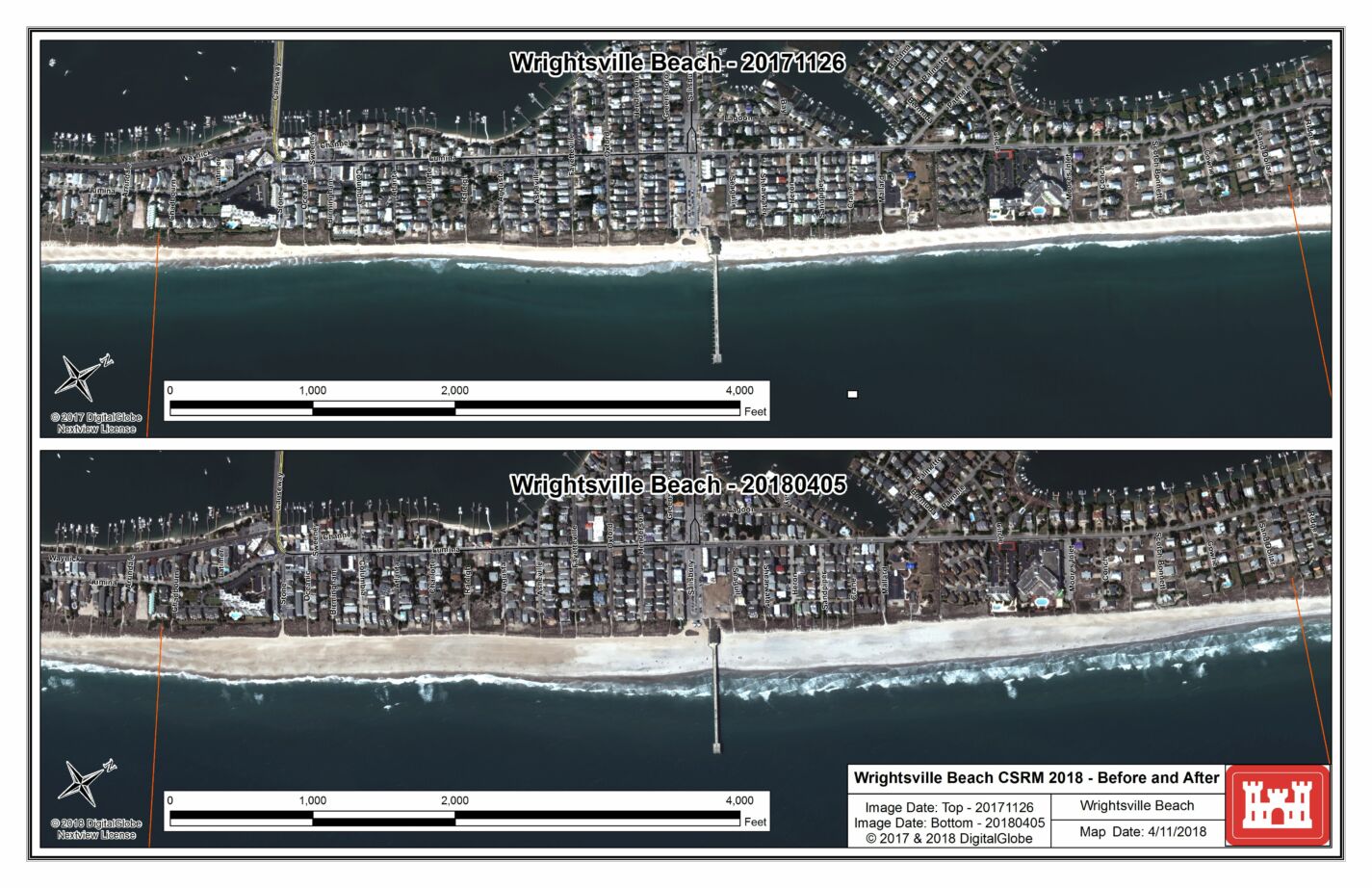- "if Wrightsville Beach experiences one more major storm the devastation to property could be catastrophic, costing taxpayers as well as the National Flood Insurance Program significantly more.” said Congressman David Rouzer, R-NC
The U.S. Army Corps of Engineers (USACE) recently announced it will enact an emergency exception to the Coastal Barriers Resource Act The exception will allow USACE to use the Masonboro Inlet location for renourishing Wrightsville beach, work that is scheduled to begin in November.
With hurricane season officially started June 1 and running through November 30, U.S. Rep. David Rouzer, R-NC7, and Wrightsville Beach Mayor Darryl Mill have been warning lawmakers on Capitol Hill of impending crisis at North Carolina’s shore.
Rouzer introduced H.R. 524 in January to add an exemption to the restriction on the use of federal funds for certain shoreline borrow sites within The Coastal Barrier Resources Act (CBRA). He argued that Wrightsville is long overdue for the project, due in part to a reinterpretation of the CBRA policy by the Biden Administration.
“I’m pleased the Army Corps of Engineers has approved an emergency exception allowing Wrightsville Beach to use their 50-year traditional borrow site,” said Congressman Rouzer. “For long-term certainty, this emergency exception needs to be made permanent. H.R. 524, legislation I introduced at the beginning of this new Congress would do just that.”
a wave of economic impact
Coastal communities generate billions of dollars’ worth of economic impact in North Carolina. New Hanover, Brunswick, and Pender counties had $2.07 billion worth of visitor spending combined according to a 2021 study “The Economic Impact of Travel on North Carolina Counties” by Visit North Carolina.
This spending not only supports the local economies but also has a positive effect on the state’s economy through sales and room occupancy taxes. Additionally, the visitor spending accounts for the creation of more than 12,000 jobs in the TriCounty area. Local areas including Wrightsville Beach are some of the biggest draws.
In 1956, the US Army Corps of Engineers was tasked with accomplishing beach nourishment in coastal communities across the country. Described by the USACE website “Beach nourishment is the adding of sediment onto or directly adjacent to an eroding beach.” Beach nourishment serves several purposes. A well-maintained and expanded beach attracts more visitors, boosting the local economy and supporting the tourism industry in the area.
It also helps to combat erosion by replenishing sand that has been lost over time with normal ocean activity or due to storms. By restoring the beach with additional sand, it creates a protective buffer that helps safeguard properties from wave damage during tropical storms and hurricanes. Beach nourishment also aims to enhance recreational and tourism activity.
However, in 2021 the Biden Administration implemented new policy that cut back on federal funds for some renourishment projects.

Biden “reinterpretation” hits wrightsville beach
In July 2021, the Biden administration introduced a reinterpretation of CBRA, which had a significant impact on the renourishment program at Wrightsville Beach. CBRA, enacted in 1982, was designed to minimize the amount of federal funds for undeveloped coastal barriers. Among these barriers is the Masonboro Inlet, which the USACE had been dredging for many years to carry out the renourishment project at Wrightsville Beach.
Due to the reinterpretation of CBRA, the USACE was forced to identify an alternative site to source sand for the renourishment efforts. A January 2023 assessment from the Crops found two potential offshore borrow sites. Both sites would take longer than the traditional Masonboro dredge, have a more significant environmental impact, and “would increase construction costs significantly” according to the USACE.
NC officials sound the alarm
This year, Rouzer and Mills have pushed congressional committees to prevent crisis at the shoreline.
“Wrightsville Beach is long past its due date for much needed renourishment,” Rouzer said during a recent House Natural Resources Committee meeting. “Seasonal storms have caused flooding to occur more quickly and more easily than in the past…. In fact, if Wrightsville Beach experiences one more major storm the devastation to property could be catastrophic, costing taxpayers as well as the National Flood Insurance Program significantly more.”

Mills expressed similar concerns when he testified in front of the Subcommittee on Water, Wildlife and Fisheries.
“Since federal funds have been first available which was in the 1960s to spend to protect coastal areas, Wrightsville Beach has been the beneficiary on a four-year cycle,” he told lawmakers. “That has allowed Wrightsville Beach to protect valuable coastal infrastructure, property, and indeed life.”